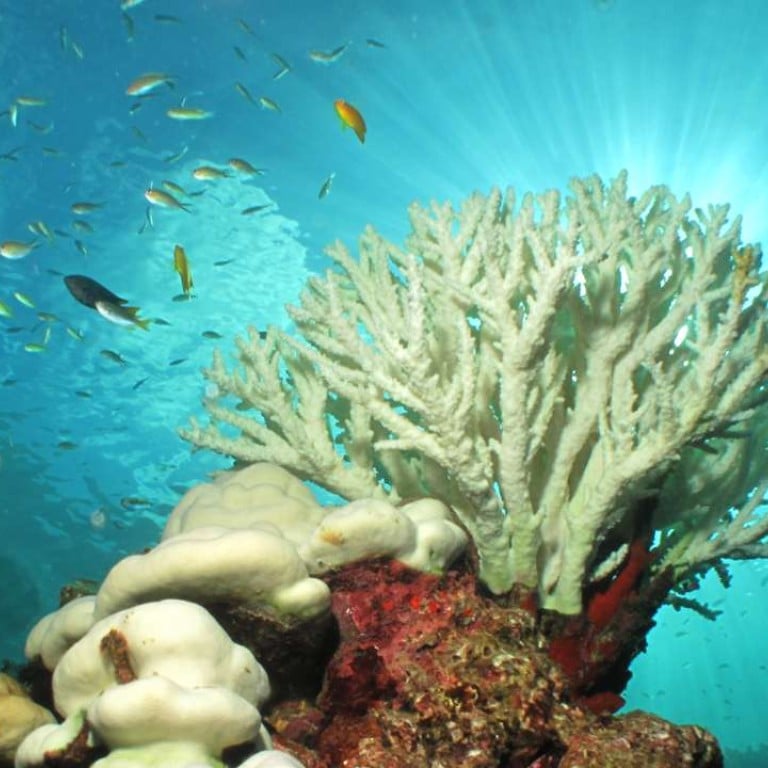
Thailand, in rare step, shuts 10 dive sites over coral bleaching crisis
Warming waters and rising visitor numbers have damaged coral reefs and their ecosystems, national parks chief says. Sites will be checked before peak tourism season starts in November
Thailand has shut down 10 popular diving sites in a bid to slow a coral bleaching crisis –a rare decision to put the environment before tourism profits.
The country’s southern coastline and islands are home to some of the world’s most prized white sand beaches and scuba diving sites, and the booming tourism industry props up Thailand’s sagging economy. But warming waters and ever-growing swarms of visitors have damaged coral reefs and ecosystems.
The National Parks department has now indefinitely closed at least 10 diving spots after a survey found bleaching on up to 80 per cent of some reefs.
“The coral reefs are affected by unaware tourists – when they go diving they may touch or step on the reef. Closing those spots will help the reefs recover naturally,” said National Parks Office director Reungsak Theekasuk.
The diving sites lie off beaches stretching from Rayong province in the east down to Satun in the far south.

Corals can survive bleaching but they become more vulnerable to further damage while the condition persists.
Reungsak says the closed diving sites will be inspected ahead of the peak tourist season, which starts in November.
“Where we see there is still a crisis, we will have to keep the area and reefs preserved,” he says.
The parks department also recently ordered the closure of Koh Tachai, a popular island in the Andaman Sea, to let it recover from environmental damage caused by overcrowding.
Thailand’s vital tourism industry remains one of the few economic bright spots as the junta-led government struggles to kickstart the kingdom’s stumbling economy.
Tourism accounts for around 10 per cent of Thailand’s economy, and officials have said they hope to attract 32 million visitors in 2016.

.png?itok=arIb17P0)